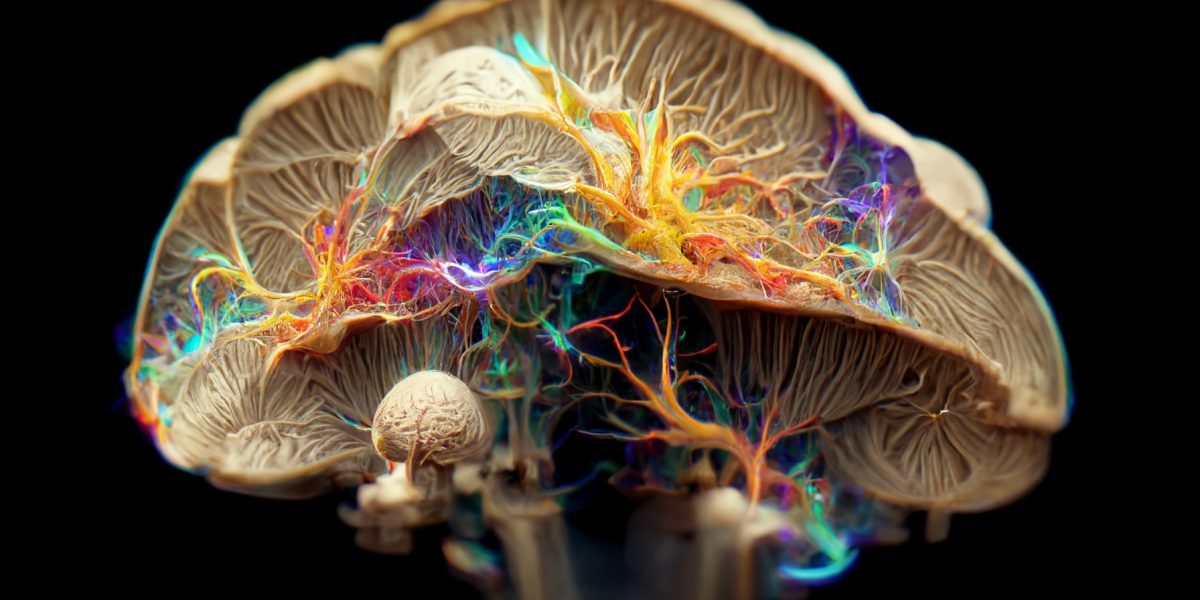
in this article
- Setting The Stage - My Early Experiences
- The Origins of Psychedelic Usage
- Effects of Psychedelics on the Brain
- The Stoned Ape
- The Science of Psychedelics
- Conclusions
Are you 18 or older?
Please confirm that your are 18 years of age or older.
You are not allowed to access the page.
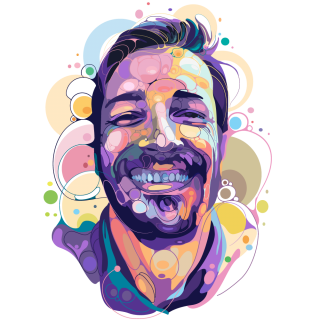


Disclaimer: The views and opinions expressed in this article are those of the authors and do not necessarily reflect the official policy or position of Chemical Collective or any associated parties. Always practice good set and setting when exploring any psychedelic compounds. We have a fantastic article looking into this subject you can read here.
I first experienced psychedelics very young, and they profoundly affected my life and outlook. They have opened my mind to areas of thought I would not otherwise have had access to. However, I can not encourage or condone the usage of psychedelics at a young age, as it would be wrong to ignore or downplay the potential risks, especially to a developing mind.
First encountering psychedelics as a teen was pretty shocking and terrifying, though not in the moment. It is difficult to describe the experience of the disintegration of yourself, the fragility of our perception of time, the expansion of your consciousness to somehow encompass a whole and look back at yourself, without sounding like a crazy person. And it is very easy to get lost in the notion of, ‘nothing means anything,’ when you are forced into the realisation that objects are not, in fact, the words which describe them. Without guidance, this has the potential to lead you down some very dark roads.
It took me several years to integrate this altered way of thinking, of myself and the wider world, with day-to-day living. But, to me, psychedelic experiences have been some of the most memorable, formative, and influential of my life and I believe they have played a large part in shaping the person I have become.
Psychedelic drugs are immensely powerful, even in the modern-day, even without guidance or ritualistic practice. This leads me to believe that in the past when the effects of the substances could be seen as entirely factual, or communicating with external forces, this power must surely have been even greater. I want to investigate the development of psychedelic usage, and the scale of its influence on human culture, in the past, and today, and see how this lines up with my perception of psychedelics as a catalyst for the evolution and change of an individual.

It is widely accepted that psychedelics have been used ritually for thousands of years. As a result, psychedelic substances are seen as ‘hugely influential in shaping certain cultures…dating back to 4,000 BC.’They have influenced the path of many religions and are still seen as sacred throughout many areas of the world as an integral element of spiritual ceremonies for many cultures.
Examples include the legendary ‘Soma’ that appears throughout the Sanskrit texts that form the Hindu religion, the active component of which was possibly the hallucinogenic Amanita Muscaria (the Fly Agaric mushroom). And in the Eleusinian Mystery Rites the ancient Greeks gave initiates a drink made from wheat most likely infected with the Ergot fungus – the active component of which is a close relative of the synthetic compound LSD.
These societies discovered how to employ various psychoactive plants and mushrooms to reach altered states of consciousness. Mystical, divine, or religious experiences have played an important role in the evolution of human societies.
Some scholarship suggests that the emergence of the first city-states in the Middle East nearly 12,000 years ago was made possible by belief in “Big Gods”, who supposedly oversaw all human action and guided human affairs.
According to James Carney, a psychologist at Lancaster University, this is all down to maintaining cohesion and loyalty in the group.
If I believe myself to be at one with my tribe, my church or the universe itself, it’s easier to accept others getting the benefits of my hard work. The connection is important because it makes people more willing to cooperate when the results of doing so are not immediately beneficial.
Psychedelics can, therefore, help to foster human cooperation, which is necessary as groups increase in scale and bonds need to be formed between individuals that aren’t involved with one another, or may never even meet at all. This is the reason Carney believes that we may be wired to actively seek out experiences that put us into these states of mind.
This of course does not say that humans evolved to consume psychedelic substances. It does, however, suggest that there may be some evolutionary benefit to consuming said substances, as a spiritual hack of sorts:
A shortcut to the transcendental states we enjoy.
So, what do psychedelics actually do to the brain to create these ‘transcendental states’?
Due to the widespread illegality of these substances, work into really understanding how psychedelics create the effects they do is still in its infancy. What we currently know is relatively simplistic but does go a long way towards explaining our experiences, collectively and as individuals.
We split the effects of psychedelics into two categories, disintegration – when different parts of the brain become less cohesive, and desegregation – when parts of the brain that are usually responsible for specific functions become less distinct.
Micheal Pollan, author of (deep breath) ‘How to Change Your Mind: What the New Science of Psychedelics Teaches Us About Consciousness, Dying, Addiction, Depression, and Transcendence.’ explains these effects, in an interview with Time Magazine.
Psychedelics appear to diminish activity in one very important brain network called the default mode network. That network is very involved with operations having to do with our sense of self: how we integrate what’s happening to us in any given moment, with our abiding sense of who we are
This perfectly lines up with my individual experiences of psychedelics, the sense of being outside of yourself, or the feeling of physical connection between yourself and the environment as a whole.
When…you have this sensation of ego-dissolution: that your self is evaporating or dissolving…that seems to lead to new connections in the brain…New connections are made that could produce new insights, new perspectives, new ways of looking at the world.
Therefore, if psychedelic substances were regularly used in the past as active parts of society, then it is very likely that their promotion of states of pliability and plasticity of thought must have been integral to pushing society forward. This brings us, as any extended discussion of psychedelics is wont to do, to Terence McKenna, and his theory of The Stoned Ape.
Around two hundred thousand years ago, our ancestors’ brains doubled in size as they migrated out of Africa. Language appeared and began to develop and evolve into a tool that slowly created what we today know as culture. So, the theory goes that the emergence of the language phenomenon and this sudden, drastic increase in brain size is a direct result of the consumption of psilocybin mushrooms.
Terence McKenna first introduced the Stoned Ape theory in his 1992 book, ‘Food of the Gods,’ though he never actually referred to the theory by that name. McKenna theorized that psilocybin altered the capabilities of the primitive brain and forced it to rapidly reorganize. This brought us:
Out of the animal mind and into the world of articulated speech and imagination.
This directly caused the rapid growth of our perceptual abilities that led to the birth of artistic expression, complex communication, and the appearance of early technologies. As Terence succinctly describes the process, we, ‘ate our way to higher consciousness.’ [9]
The increase in scale of human societies and the development of culture can be directly linked to the domestication of wild cattle. Therefore, humans began to spend an increasing amount of time in the presence of cow dung. Psilocybin-containing mushrooms are known to grow commonly in cow dung.
While this link may sound somewhat tenuous, and the theory has had its share of scorn and controversy, recently it has made something of a renaissance. At ‘Psychedelic Science 2017,’ American Mycologist, Paul Stamets presented, ‘Psilocybin Mushrooms and the Mycology of Consciousness.’
(Available on YouTube for those interested, you can watch it here).
In this talk, he attempted to re-establish McKenna’s theory as a plausible explanation of the sudden emergence of consciousness.
What is really important for you to understand, is that there was a sudden doubling of the human brain 200,000 years ago. From an evolutionary point of view, that’s an extraordinary expansion. And there is no explanation for this sudden increase in the human brain.
He asked the crowd to momentarily forget their preconceptions and admit that McKenna’s proposal is a, ‘plausible hypothesis for the sudden evolution of Homo sapiens from our primate relatives,’ [11] even though it is of course impossible to prove.
So, what is it actually possible to prove about psychedelics and their effects? And how can we apply this knowledge to ourselves and society as a whole?
Recently, as attitudes towards psychedelics have begun to soften, a number of clinical trials have begun into their potential efficacy as a treatment for patients with conditions such as depression, addictions and PTSD, and they have yielded increasingly promising results.
Dr Robin Carhart-Harris, the head of the Centre for Psychedelic Research at Imperial College London, has used psilocybin mushrooms to successfully treat depression. Carhart-Harris posits the drug’s ability to promote a feeling of connection with the wider world as a reason for its apparent effectiveness. He compares this feeling of connecting with things beyond oneself to the ‘overview effect,’ which astronauts experience looking back at the pale, blue dot of the earth, from space.
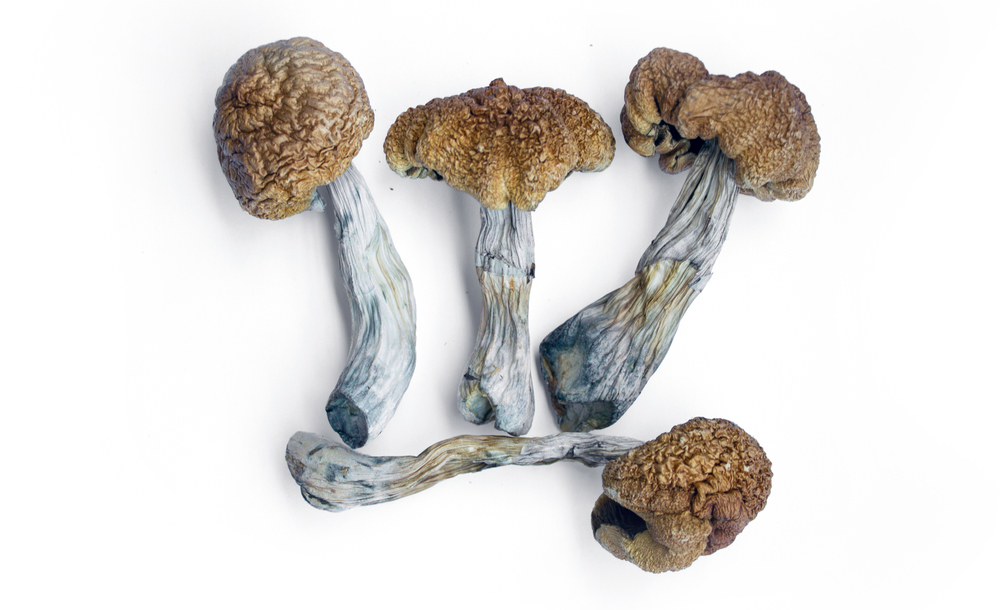
All of a sudden, they think, ‘How silly of me and people in general to have conflict and silly little hang-ups that we think are massive and important.’ When you’re up in space looking down on the entirety of the Earth, it puts it into perspective. I think a similar kind of overview is engendered by psychedelics.
Carhart-Harris and his colleague, Ari Brouwer, introduced the concept of the ‘pivotal mental state,’which can be ‘defined as a hyper-plastic state aiding rapid and deep learning that can mediate psychological transformation.’ This state can be reached in a variety of ways, mantra, meditation, song, or any number of religious rituals, but the one pertinent to this article is, of course, the consumption of psychedelic drugs. This is a state in which all aspects of you, your personality, outlook, and opinions, are prone to the possibility of change. Carhart-Harris describes the state as having ‘evolved to allow the experiencer a fresh start,’ akin to a psychological ‘rebirth.’
These states can also be caused by intense mental or physical stress, but they can also be produced by drugs, especially psychedelics. Carhart-Harris and Brouwer highlight the fact that pivotal mental states are not necessarily positive or negative in and of themselves. They represent a ‘psychological crossroads which can lead to many destinations, from improved mental health to serious disorders.’
This lines up with the common perception of a ‘Good’ or ‘Bad’ trip. So, what factors can influence a pivotal mental state in a good or a bad direction? Carhart-Harris and Brouwer emphasize:
The social, psychological and emotional environment, broadly speaking — as key. These need to be treated with special attention and therapeutic care (where possible) if an individual’s psychological well-being is to be safeguarded.
This potentially tenuous position highlights the importance of the oft-mentioned, ‘set and setting’ and the need for guidance and support during or after trip, so you can process what may be a difficult, emotional ride. My previous experiences without the benefit of this environment, knowledge or support were sometimes scary. As previously mentioned, though I have found them ultimately beneficial, they took an awfully long time to process and were not without mental struggle.
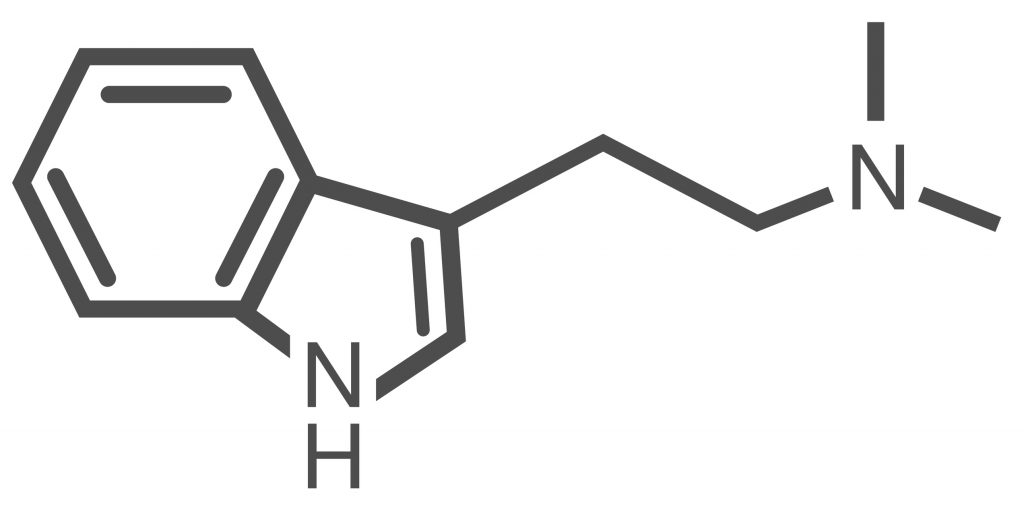
Another current area of research showing a huge amount of promise is centred on the drug N,N-dimethyltriptamine, or DMT, the main ingredient of the famous psychedelic brew, Ayahuasca.
Preliminary studies from researchers at the Instituto de Investigaciones Biomédicas and the Network Center for Biomedical Research in Neurodegenerative Diseases have shown that not only does DMT appear to have strong antidepressant properties but also actually stimulates the creation of new nerve cells in the brain, developing spatial learning abilities and improving performance in memory tasks.
Together, these findings, along with the previously discussed work of Carhart-Harris and Brouwer, suggest that DMT increases the ‘plasticity’ of the brain, which is the brain’s capacity to reorganise and learn new things.
This could also suggest that DMT could be an effective treatment for neurodegenerative disorders like Alzheimer’s and Parkinson’s. José Ángel Morales, who led the research, says that ‘this capacity to modulate brain plasticity suggests that [DMT] has great therapeutic potential for a wide range of psychiatric and neurological disorders, including neurodegenerative diseases.’
Neurodegenerative diseases are caused by a continual loss of nerve cells in parts of the brain or other areas of the nervous system. One possible method to reduce or reverse this damage could be to restore the brain’s capacity to produce new nerve cells, known as ‘neurogenesis’.
Most nerve cells in the body are generated prior to our birth, so a substance able to, as Morales puts it, ‘activate our dormant capacity to form neurons and thus replace the neurons that die as a result of the disease…This study shows that DMT is capable of…forming new neurons.’
In another set of experiments, researchers injected mice with DMT for twenty-one days, and then analyzed the mice’ aptitude in spatial learning and memory tests.
The mice that received DMT performed noticeably better on the tests, suggesting that the brain is using the newly created brain cells to improve their learning ability. These effects seem to line up with Carhart-Harris’ findings and perhaps explain what creates his ‘pivotal mental states’.
So, now that we are slowly beginning to fashion a rudimentary understanding of how and why people do psychedelics and why psychedelics do what they do, how do we use this knowledge?
Psychedelics have been used for thousands of years and may even have been an integral ingredient in fermenting the sudden spark of conscious thought in the primate brain. I believe it is undeniable that they have been involved in shaping the development of myths, religions and societies all over the world.
The potential uses of these substances in areas such as depression, drug abuse, and even Alzheimer’s, seem gigantic. The medical applications and renewed study in this area will also have knock-on positive effects on the recreational usage of these drugs.
For too long, illegality and the resulting stigma have fostered an environment in which these and many other powerful, and potentially dangerous chemicals, are vilified rather than discussed rationally. Therefore, the level of education around them and knowledge we have easy access to about them is incredibly limited for the vast majority of people.
The understanding we glean from the studies into these various substances is of huge benefit to harm reduction, not only in terms of people having the required knowledge to use the substances safely but also in terms of softening society’s stance towards these drugs as a whole, which will increase people’s access to this knowledge, which is key. People have always done and are doubtless going to continue to do psychedelic drugs recreationally, so we need to create a society in which it is safe for us to do that.
When you place yourself voluntarily through what has been revealed to be an extreme stress reaction, which proceeds a, ‘pivotal mental state,’ the importance of set and setting cannot be understated. You require a safe, supportive environment in which to undertake the experience and, equally as important, some means of processing and integrating the experience once it is over.
Psychedelics have had a huge effect on my life and the lives of countless others throughout human history. We are inseparably intertwined with these substances and have been for as long as we have been conscious. The science of psychedelics is still in its infancy, and we are only just beginning to scratch the surface of their potential, but they have already been proven to give us the ability to, literally, change our minds. And, perhaps, that is the most powerful ability we have.
David Blackbourn | Community Blogger at Chemical Collective
David is one of our community bloggers here at Chemical Collective. If you’re interested in joining our blogging team and getting paid to write about subjects you’re passionate about, please reach out to David via email at blog@chemical-collective.com
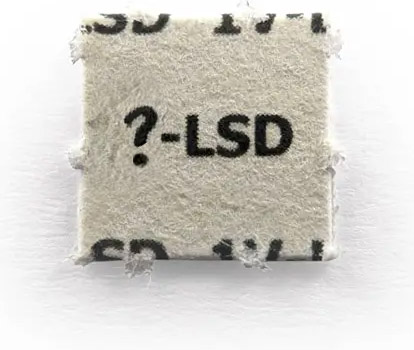
Germany | Wird es in Deutschland einen 1V-LSD Nachfolger geben?

Guides | Microdosing – Everything We Know
Welcome to Chemical Collective.
Create an account to earn 200 welcome points.
Already have an account? Sign in
Check out our Community Blog and get involved with the conversation. You will be awarded 50 x ChemCoins for each comment up to a limit of 250 total ChemCoins.
Have you purchased any of our products? Reviews and reports are so important to the community. Share your honest opinion, and we’ll reward you with 50 ChemCoins for each review!
Every time you complete an order with us, you’ll be awarded ChemCoins for each Euro spent.
Welcome to Chemical Collective.
Create an account to earn 200 welcome points.
Already have an account? Sign in
Earn commission every time someone makes a purchase through your link.
When you become an affiliate, you will be allocated a unique link to share with your friends, followers, subscribers, or Aunt Susan.
You can choose to payout the commission earned once per month, or save it up to receive on a rainy day! Commission earned is 5% of the total order value per referral.
Contact us to join the Chemical Collective family and become an affiliate.
share your toughts
Join the Conversation.
very interesting, imo osychedelics shouldn’t be illegal, rather make it legal and educate people about them
Very nice and detailed article
I think it’s interesting that DMT is naturally occurring within the human body, there has to be a reason why nature evolved that way. Legalize it
Interrsting🤓
Impresionante artículo. Felicitaciones David, de los mejores del blog
I was watching the show, Ancient Aliens, the episode mentioned aliens were responsible for the jump in human consciousness and abilities. Then I was talking to my brother who read Food of the gods, and he mentioned psychedelics caused the brain to become more developed back in the day, bringing us to where we are now.(which is a pretty dismal state of existence with a nuclear war on the horizon).
What if the beings from another planet brought the psychedelics to help us out?
Interesting
legalizujte psychadelika!!!
Ifreue mich drauf
Muy interesante, en mi primera experiencia psicodelica, senti que algo había cambiado en mi, en mi forma de percibir el mundo. Ahora es como si pusiese el foco en lo realmente importante. La amistad, la naturaleza y el momento
based af
I always feel the sense of spirituality and deep rooted human nature when taking psychedelics. This has led me to believe, that humans have always taken such substance, just like you wrote. I mean, even today it is evident that people like native inhabitants in the amazonas regions do still participate in rituals including ayahuasca that have been around for thousands of years. Very interesting article!
very interesting read Thank you
Psychedelics and other substances belong to the human evolution!
Still can’t phantom why psychedelics are illegal